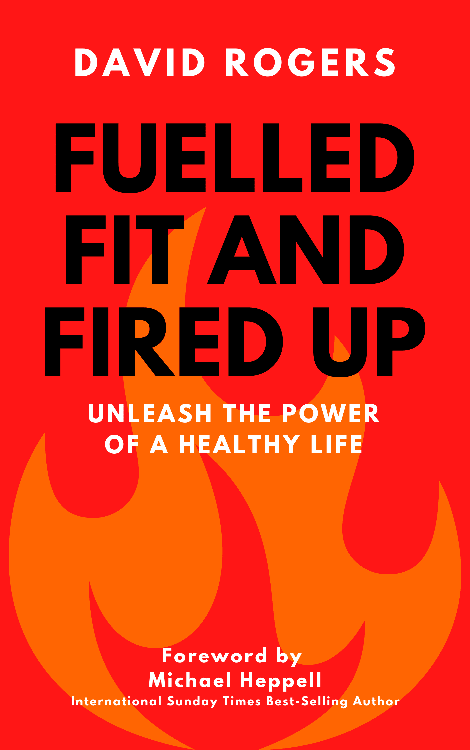
Your Inner Warrior
Are you ready to unleash Your Inner Warrior? 🚀
Inspired by a recent episode of the High Performance Podcast, where guest Ben Bergen described five mindset levels, let's gear up for success as we explore how embracing the warrior mindset can elevate our performance in life.
🧠 The Science Behind Mindset
Curious about the science that underpins our mindsets?
Dive into the psychology of thought patterns and discover how neuroplasticity allows us to rewire our brains. Plus, explore practical techniques to shift your mindset, from cognitive reframing to mindfulness practices.
The science that underpins our mindset involves various fields such as psychology, neuroscience, and cognitive science. Here are some key aspects:
Neuroplasticity 🧠: The brain's ability to reorganise itself by forming new neural connections throughout life is known as neuroplasticity. This concept suggests that our brains can adapt, and change based on experiences, learning, and environmental factors. By consciously engaging in positive thinking and adopting new habits, we can influence the neural pathways in our brains.
Psychology of Beliefs 🤔: Cognitive psychology explores how our beliefs, thoughts, and attitudes shape our behaviours. Our mindset is influenced by our beliefs about ourselves, others, and the world. Understanding and challenging limiting beliefs can lead to a more positive and growth-oriented mindset.
Behavioural Psychology 🔄: Behavioural psychology studies how our behaviours are shaped by reinforcement, punishment, and environmental stimuli. By implementing positive reinforcement for desired habits and gradually modifying negative actions, individuals can shift their mindset and create lasting change.
Emotional Intelligence 🧠: Emotional intelligence involves recognising, understanding, and managing one's own emotions and the emotions of others. Developing emotional intelligence can contribute to a more positive mindset by fostering empathy, self-awareness, and effective communication.
Positive Psychology 🌈: This field focuses on the positive aspects of human experience, emphasising strengths, virtues, and factors that contribute to a fulfilling life. Positive psychology interventions, such as gratitude practices and strengths-based approaches, have been shown to positively impact mindset and well-being.
Mindfulness and Meditation 🧘♂️: Practices like mindfulness and meditation have gained attention in neuroscience for their impact on the brain. These practices can lead to changes in brain structure and function, promoting a more focused and resilient mindset. They also help individuals become aware of their thoughts and choose intentional responses.
Understanding these scientific principles empowers individuals to actively shape and cultivate their mindset. By applying these insights, individuals can develop a more positive, resilient, and growth-oriented approach to life and work.
🔍 Understanding the Mindset Landscape
Picture this: Your mindset is the invisible force steering your ship. In this section, we'll unravel how each mindset influences your performance. From the victim's lack of initiative to the optimist's potential pitfalls, discover the nuances that can make or break your career trajectory.
Victim Mindset 🤦♂️: Ever found yourself blaming external factors for challenges at work? The victim mindset can hinder problem-solving and growth. Transform "Why me?" into "What can I learn?". A victim mindset might lead to a lack of initiative and accountability. Take charge of your narrative, focus on solutions, and watch how your performance transforms.
Pessimist Mindset 🌧️: Constantly anticipating the worst can lead to missed opportunities and a negative work environment. Shift focus from problems to solutions; optimism can be a game-changer. Constant negativity can create a toxic atmosphere. Shift the focus to solutions, foster collaboration, and witness how a positive environment fuels productivity.
Optimist Mindset: 🌈 While optimism is crucial, being overly positive without action can result in unmet expectations. Combine optimism with strategic planning to create a winning formula. While optimism is fantastic, it needs to be coupled with actionable plans. An optimistic mindset with strategic thinking can drive innovation and propel your career forward.
Realist Mindset 🧠: Grounded in reality, a realist evaluates situations objectively. Strike a balance between optimism and pragmatism to set achievable goals and make informed decisions. Realists are excellent planners, but without optimism, it can lead to a fear of taking risks. Combine realism with a dash of optimism to inspire calculated, forward-moving actions.
Warrior Mindset ⚔️: The epitome of resilience and determination. Warriors don't just face challenges; they conquer them. Embrace the warrior mindset to turn obstacles into opportunities. The warrior mindset fuels determination and resilience. Conquer challenges with a proactive approach, turning setbacks into stepping stones towards success.
🔄 Balancing Realism and Optimism:
Optimism is a powerful force, but it's not always the complete answer. Enter the Stockdale Paradox, named after Admiral James Stockdale, a prisoner of war. This paradox highlights the delicate balance between optimism and realism. Admiral Stockdale survived captivity by acknowledging the brutal facts while maintaining an unwavering belief in a positive outcome.
In essence, the Stockdale Paradox is about facing harsh realities with courage and clarity, yet never losing faith in ultimate success. It's a reminder that true resilience lies in finding strength in adversity, embracing the challenges, and maintaining an unshakeable hope for a better future.
So, how what techniques can we use to change our mindset?
Here are four to get you started.
🧠 Techniques for Change
Cognitive Restructuring: Challenge and change negative thought patterns by replacing them with positive, empowering ones.
Mindfulness Practices: Cultivate awareness of your thoughts and emotions to break free from automatic negative reactions.
Gratitude Journaling: Foster a positive outlook by regularly acknowledging and appreciating the positive aspects of your life.
Affirmations: Use positive affirmations to rewire your subconscious mind and instil a more optimistic perspective.
Remember, your mind is a powerful tool—learn to harness its potential!
Why not share a moment when embracing a new mindset made a significant impact on your life?
Have you reached Warrior level?
Your mindset shapes your reality. Embrace the warrior within and make this week a triumph! 💪💡
Have a brilliant week!
Dave Rogers, Chief Business Explorer, Fuelled Fit and Fired Up
At Fuelled Fit and Fired Up, I use my curiosity to help you build a better business.
Think of me as the person who unleashes your power.
Looking for a speaker who thinks a little differently? Let’s talk.
Why not contact me at info@fuelledfitandfiredup.com to find out more?
And don’t forget to subscribe to my YouTube channel @thebusinessexplorers, where I share ideas on how you can create your recipe for business success.



